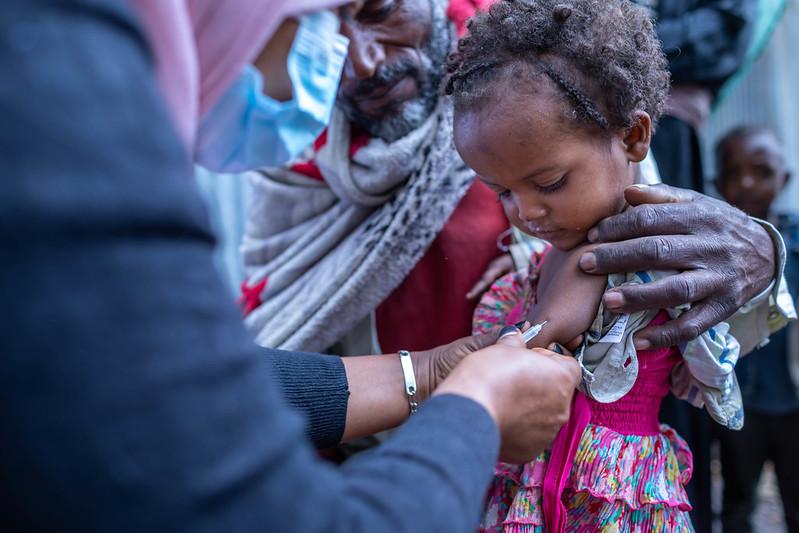The World Health Organization (WHO) has been tracking health system impacts since the early days of the pandemic, and its latest survey of countries shows that health services are starting to recover, according to new findings released today.
In other global COVID developments, the European Centre for Disease Prevention and Control (ECDC) detailed lessons learned during the pandemic response, the result of a 2-year effort that included expert consultations, after-action reviews, and discussions with country health officials. And in the United States, the Biden Administration yesterday announced the end of vaccination requirements for federal workers, international travelers, and other groups.
Improvements, but gaps persist across regions and income levels
The signs of health service recovery came from the fourth round of WHO surveys designed to gauge how the pandemic was affecting the delivery of essential health services. Disruptions continue in nearly 23% of services, down from 56% in summer of 2020.
The WHO said disruptions continue in both the demand and supply part of health services, which reflect lower levels of health-seeking from the public and limited availability of health workers and other resources such as clinics, medicines, and products.
Rudi Eggers, MD, who directs the WHO's Integrated Health Services, said restoring essential health services to millions of people who missed them during the pandemic is welcome news. "But we need to ensure that all countries continue to close this gap to recover health services, and apply lessons learnt to build more prepared and resilient health systems for the future," he added.
By the end of 2022, most countries reported partial signs of recovery across a broad range of services, from maternal and child health to care for older people, spanning both communicable and noncommunicable diseases. The number of countries reporting supply chain disruptions over the past year dropped from half to one quarter.
Some disruptions still persist in all regions, across all income levels, and affecting most delivery systems. The WHO also warned that countries are grappling with increasing service backlogs, such as screening and diagnosis of noncommunicable diseases, which can have negative consequences due to care delays.
In other findings from the survey, the WHO said 80% to 90% of countries have integrated COVID-19 services into their routine health delivery systems, though most report some bottlenecks in areas such as vaccination and diagnostics, with healthcare workforce and lack of funding as the main barriers.
Also, the survey revealed that most countries have started applying lessons they learned during the pandemic, such as using telemedicine or promoting home-based services.
ECDC after-action analysis emphasizes need to bolster public health staff
With a stabilizing pandemic situation, countries and health groups continue to synthesize lessons learned as part of the effort to prepare for future health threats. The ECDC today released a report detailing its findings, which fall into four main areas: public health workforce investments, preparing for the next health crisis, risk communication, and data collection and analysis.
One overarching theme was the need for a strong public health workforce that is trained to use new systems and methods, which the ECDC said is vital for implementing all the other lessons learned. During the fact-finding part of the analysis, countries reported challenges retaining staff that were hired on an emergency basis, compounded by lack of funding even before the pandemic.
They acknowledged burnout in public health staff and the need to recover to prepare for the next health emergency.
Other lessons were the need for a formal role for public health institutes for giving evidence-based advice and avoiding politicization. Also, they recognized that countries struggled with communicable disease legislation during the pandemic, which the ECDC said points to a need for updates that support emergency planning while also considering human rights and data protection.
Among the many data-related issues, the group said the results found a need to step-up capacity for lab testing and genomic surveillance.
White House to end traveler and federal employee vaccine requirements
In US developments, the Biden Administration yesterday announced that it will end COVID-19 vaccine requirements for federal workers, contractors, and international air travelers at the end of the day on May 11, when the COVID-19 public health emergency ends.
Officials also announced the Department of Health and Human Services will start winding down the vaccine requirement for Head Start teachers, health facilities certified by the Centers for Medicare and Medicaid Services, and certain noncitizens at land borders.
In a statement, the White House said the vaccine requirement protected critical workforces and the populations they served and helped slow the spread of the virus to allow health systems more time to manage its increased burden.
"While vaccination remains one of the most important tools in advancing the health and safety of employees and promoting the efficiency of workplaces, we are now in a different phase of our response when these measures are no longer necessary," it said.



















